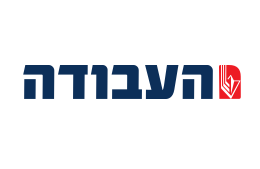Labor Party (Ha'Avoda)


The Israeli Labor Party ("HaAvoda") is the successor of the historical Mapai party and continues its path in Israeli politics. The party was established in January 1968, following a union between Mapai, Achdut HaAvoda, and Rafi. Until the elections for the 12th Knesset in 1988, the Labor Party ran for Knesset as part of the Ma'arakh (Alignment) list. In the elections for the 13th and 14th Knessets in 1992 and 1996, the Labor Party ran on its own. In the elections for the 15th Knesset in 1999, Labor was the main faction in the One Israel (Yisrael Ahat) list. In the next two election campaigns, the Labor Party ran together with Meimad, but this partnership ended in the elections for the 18th Knesset in 2009. In the 2015 elections the Labor Party ran with Hatnua in a joint list under the name Zionist Union.
As the successor of Mapai, the Labor Party also had a moderate Zionist-socialist ideology. It continued Mapai's connection with the General Federation of Labor (Histadrut), but in the mid-1990s, the party's socio-economic orientation became more moderate, turning towards social democracy. On the issue of the Israeli-Palestinian conflict, the party gradually moved to the left over the years and was the first major party to call for negotiations with the PLO and to support the establishment of a Palestinian state. On issues of religion and state, the Labor Party has continually been torn between its ideological positions and its unwillingness to be involved in conflict with the religious parties, which have been its coalition partners. The party began to be more free in expressing its positions on matters of religion and state after Labor fell from power in 1977, after which the traditional alliance between the religious parties and the Labor party ended. At this point, the Labor Party began to express support for formal recognition of all of the denominations of Judaism and for drafting ultra-Orthodox yeshiva students.
The first head of the Labor Party was Prime Minister Levi Eshkol. Since then four other members of the party served as prime ministers: Golda Meir, Yitzhak Rabin, Shimon Peres, and Ehud Barak. The Labor Party held the reins of power in the Knesset from the time of its establishment until the historic turnaround in 1977, when Labor lost to the Likud for the first time. In the 1980s, Labor served in several national unity governments together with the Likud. In 1992, the Labor Party returned to head the government, when it formed a coalition headed by Yitzhak Rabin, head of the party at that time. In 1999, the Labor Party chairman, Ehud Barak, was elected prime minister as a result of direct elections for prime minister and Labor was again a principal factor in the coalition. Since 1992, the power of the Labor Party has declined, reaching an all-time low of 3 seats in the 2020 elections.
| Election Year | Votes Count | Number Of Seats | Share Of Votes | List Of Candidates | Platform |
|---|---|---|---|---|---|
| 2022 | 175,992 | 4 | 3.7 |
Candidates
|
Platform
|
| 2021 | 268,767 | 7 | 6.1 |
Candidates
|
Platform
|
| April 2019 | 190,870 | 6 | 4.4 |
Candidates
|
Platform
|
| 2013 | 432,118 | 15 | 11.4 |
Candidates
|
Platform
|
| 2009 | 334,900 | 13 | 9.9 |
Candidates
|
Platform
|
| 2006 | 472,366 | *19 | 15.1 |
Candidates
|
Platform
|
| 2003 | 455,183 | *19 | 15.1 |
Candidates
|
Platform
|
| 1996 | 818,741 | 34 | 26.8 |
Candidates
|
Platform
|
| 1992 | 906,810 | 44 | 34.7 |
Candidates
|
Platform
|
Note that the lists of candidates and platforms below are in Hebrew.
*In the elections of 2003 and 2006, the Labor Party ran on a joint list with Meimad. For the 1999 election result see One Israel, for the 2015 election result see Zionist Union.
Levi Eshkol, Golda Meir, Yigal Allon, Pinhas Sapir, Moshe Dayan, Yitzhak Rabin, Shimon Peres, Ehud Barak, Binyamin (Fouad) Ben-Eliezer, Amram Mitzna, Amir Peretz, Shelly Yachimovich, Isaac Herzog, Avi Gabbay, Merav Michaeli
The Labor Party, in its various incarnations, was a member of many of Israel's governments. The original parties that made up Labor, including major stakeholder Mapai, headed the coalition government from 1949–1965. Once the Labor Party was founded, it continued to play a central role in Israeli governments. The party controlled the main executive offices, including the Foreign Ministry, the Ministry of Finance, the Defense Ministry, and the Education Ministry. In 1977, the Labor Party found itself in the opposition for the first time (as part of the "Alignment"), where it remained until 1984.
From 1984–1990, Labor played a central role in the Unity Governments, and many Labor MKs served as ministers, with Yitzhak Rabin serving as Defense Minister throughout that period. In 1990, Labor moved to the opposition for the second time. After the elections for the 13th Knesset in 1992, the Labor Party, led by Yitzhak Rabin, returned to head the coalition and had 13 ministers in the government. After three years in the opposition during the 14th Knesset (1996–1999), the Labor Party once again returned to leadership, this time within the framework of "One Israel" (Yisrael Ahat). Since 2001, however, the Labor Party has only been a secondary partner in governments headed by the Likud and Kadima. Between 2011 and 2020 Labor remained in opposition - the longest period out of power in its history. It returned to the coalition in 2020 under Netanyahu's 5th government (represented by Ministers Amir Peretz and Itzik Shmuli). It maintained its coalition status also in the Bennett-Lapid governmemt, represented by Ministers Merav Michaeli, Nachman Shai and Omer Bar-Lev.